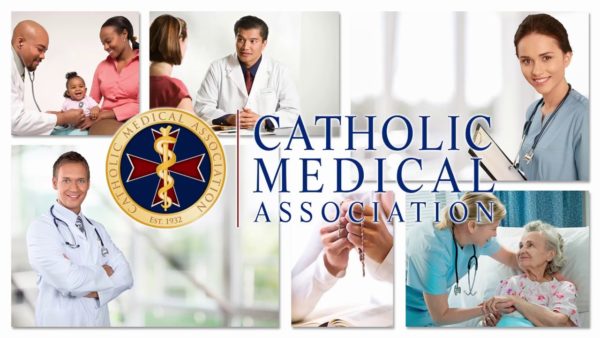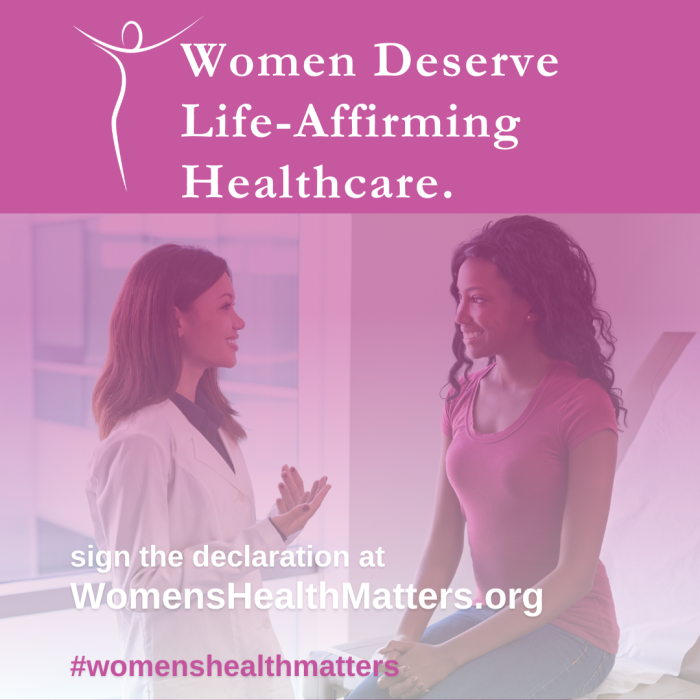October 6, 2023
By Andrew Kubick
“Always be inspired in your decisions by the conviction that life should be nurtured
and protected from its conception until its natural end. You will be recognized as
Catholic doctors by your defense of the inviolable dignity of every human person.”
– St. John Paul II

The Catholic Medical Association (CMA) held its 92nd Annual Educational Conference in Phoenix, Arizona from Sept. 7-9 of this year. Its theme was “Be Not Afraid: Courageous Catholic Medicine.” It was well attended, hosting several hundred medical students and health care professionals. The lineup of speakers was superb. They challenged and inspired their audience with topics ranging from fertility awareness-based methods to medical ethics and brain death. But even more important than the intellectual formation and fellowship was the presence of the sacraments. Mass was celebrated daily, confession was widely available, and the peace of Eucharistic adoration permeated the entire breadth of the conference, from beginning to end.

I attended this conference on behalf of the Religious Freedom Institute (RFI) for several reasons. First, I am Roman Catholic. The conference served as a much-needed spiritual retreat. Second, my educational and professional backgrounds are in Catholic bioethics. Third, I attended the conference because I am a Research Fellow in Bioethics and Medical Conscience at RFI. In that capacity, I have the privilege of working alongside Alliance Defending Freedom and Christ Medicus Foundation to form the Medical Conscience Rights Initiative (MCRI). There I function as an educator, answering the difficult questions such as What is conscience? Why is it important? How do I explain the reality of conscience to others?
The MCRI focuses on four foundational truths. First, human dignity is intrinsic, not contingent. Second, proper medical care is always life-affirming. Third, the unfailing first principle of medicine remains exceedingly relevant – first, do no harm (primum non nocere). Finally, the First Amendment’s free exercise clause naturally extends to the conscientious practice of health care professionals. These truths inform the work of the MCRI, and are found throughout our print and digital media campaigns, educational resources, grassroots coalition building, direct professional and educational advocacy with state leaders, and expert testimonies. Model state-level legislation advanced by the MCRI has been enacted in Arkansas, Ohio, South Carolina, Montana, and Florida with ongoing efforts in several other states.
With all of this in mind, I walked into the CMA conference expecting comradery, intellectual rigor, and spiritual growth. I hoped to establish relationships and introduce the work of RFI and the MCRI to everyone who was willing to listen. And thankfully, those boxes were checked.

What I didn’t expect was the epiphany that struck me at the Mass celebrated on the Feast of the Nativity of the Blessed Virgin Mary. I looked around at all of the people participating in the Mass. I saw men and women, spanning young adulthood to older age, from residency to retirement, and everything in between. I saw people who responded to God’s call to serve in a way that few are called to serve. The noble art of medicine has been a revered profession since antiquity and its members are esteemed. I am certain they are all driven by the innermost calling to heal, not harm; to protect and preserve life, not eliminate it.
Yet, in a culture that is falling further and further away from truth, goodness, and beauty; harm and the elimination of life are the ever-increasing expectations placed on health care professionals. The federal government as well as many state governments, medical boards, and professional organizations are demanding health care professionals fall in line, reject the law written on their heart, and perform or cooperate in acts they know are evil. Unfortunately, the new interpretation of the First Amendment is freedom to believe only, not freedom to believe and practice. But organizations like the Catholic Medical Association reject that interpretation. They stand up boldly in the face of opposition to defend the inviolable dignity of every human being, deliver life-affirming care and abstain from harming patients.
The Religious Freedom Institute stands shoulder-to-shoulder with them, proudly serving those who serve us.









